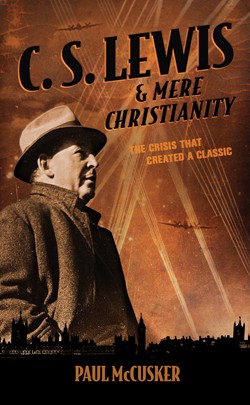
Lewis was left to face the problem of grief and unanswered prayer. Sorrow entered Lewis’s life again when Joy Davidman, his wife of only three years, died from cancer. God whispers to us in our pleasures, speaks to our conscience, but shouts in our pains: it is His megaphone to rouse a dead world. That God had used their harmful actions for good, Lewis wrote: He brought me to this position so I could save the lives of many people. You intended to harm me, but God intended it all for good.

Like Joseph, who told his brothers in Genesis 50:20 Close Genesis 50:20 Lewis came to recognize that suffering and pain are not without purpose. If the whole universe has no meaning, we should never have found out that it has no meaning. Consequently atheism turns out to be too simple. What was I comparing this universe with when I called it unjust? … Thus in the very act of trying to prove that God did not exist-in other words, that the whole of reality was senseless-I found I was forced to assume that one part of reality-namely my idea of justice-was full of sense. Just how had I got this idea of just and unjust? A man does not call a line crooked unless he has some idea of a straight line. My argument against God was that the universe seemed so cruel and unjust. Suffering was a dilemma for atheism only within Christianity did Lewis find a satisfactory explanation. In time, Lewis came to see evil and suffering as both an argument against atheism and an argument for God and Christianity. Lewis was deeply bothered by evil and suffering in the world that didn’t fit with whom he imagined God to be. Lesson One: The Importance of Reason and Good Theology

Lewis, perhaps the greatest defender of the faith of the twentieth century, provides valuable lessons for Christians today in sharing the Gospel with an unbelieving generation. His conversion to a robust Christianity required years of intellectual struggle and came only after being convinced that faith was reasonable.

The road back to faith was cluttered with obstacles Lewis once thought impossible to overcome. Disillusioned that God had not healed his mother, Lewis set out on a path toward full-bodied rationalism and atheism. Lewis’s long journey away from, and back to, faith began with his mother’s death from cancer when he was a boy. After finally admitting God existed, Lewis gave in and knelt in prayer to become what he described later as “the most dejected and reluctant convert in all England.” Lewis left his childhood Christian faith to spend years as a determined atheist.


 0 kommentar(er)
0 kommentar(er)
